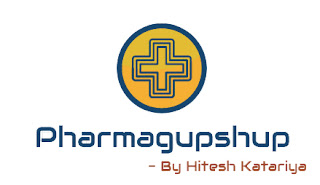The Delhi High Court has declined to vacate the stay earlier granted to certain drug brands banned by the health ministry earlier this month and said that it would hear all final arguments before deciding to revoke the order. Justice RS Endlaw, in the process of hearing the final arguments of Pfizer's counsel, extended the stay on the ban of fixed dose combination (FDC) brands petitioned by more than 60 companies.
This was despite the government's request to vacate the stay on the ban of drugs in cases not similar to Pfizer's, according to a lawyer involved in the proceedings. "The judge said that he would hear all the final arguments before deciding whether to vacate or grant stay," said the lawyer. FDCs-drugs with two or more therapeutic ingredients in a single dose are often administered to treat multiple symptoms of an illness as well as chronic diseases like diabetes.
The health ministry on March 10 banned 344 FDCs it found to be "irrational" and unsafe, which led to many popular medicine brands being ordered off pharmacy shelves. The High Court has been almost daily extending the stay first granted to drug making giant Pfizer on March 14 for its cough syrup Corex. According to a lawyer representing a leading pharma company, Pfizer's counsel Kapil Sibal stressed that the government had constituted an external committee to recommend FDCs that were "irrational" and had not consulted the Drugs Technical Advisory Board (DTAB) and Drugs Consultative Committee (DCC). DTAB and DCC are statutory bodies entrusted with the task of advising the government on such technical matters of the Drugs & Cosmetics Act, said the lawyer. "In these cases, (DTAB and DCC) were evidently not appointed. Without their guidance, you cannot, outside the statute, appoint an expert committee on the basis of whose recommendations you ban these drugs," said the lawyer.
"The Kokate Committee has no statutory authority to make recommendations," added the lawyer. Sibal further argued that only in the case of a new drug would companies have to seek approval from the Drug Controller General of India (DCGI) post 2001, said the lawyer. DCGI, the central drug regulator, is the government's highest authority on drug safety. He also said that the safety and efficacy of FDCs like the ones used in Corex were established because of their long use, added the lawyer. Brands like Corex had been in the market for 20-25 years, Sibal had earlier argued on March 14. The government, on its part, argued yesterday that extending the stay for brands using the banned FDCs would compromise the safety of patients.
"These FDCs are not safe or efficacious for human consumption and there is no justification or rationale for them," said Sanjay Jain, additional solicitor general (Delhi High Court). The government also said that it had no obligation to involve companies in its decision to ban these drugs, but had issued show cause notices to the concerned parties before making the decision anyway. The High Court on Monday reportedly slammed the government for resorting to a ban because it apparently could not control its State Licensing Authorities.
"It all boils down to this that you have exercised this power as you do not have power to take action against those operating without valid license from DCGI," Endlaw said, according to a Press Trust of India report.
Source: http://www.drugscontrol.org/news.asp?id=13880




0 comments:
Post a Comment